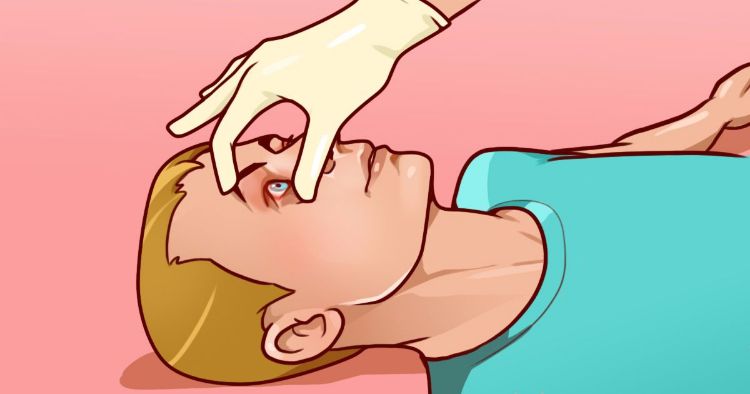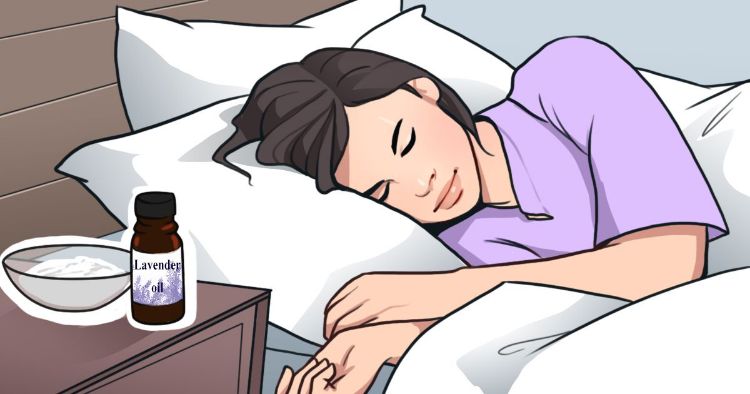A good night's sleep is crucial to having a productive day. When sleep takes a flying leap, so does emotional stability, perspective, and stamina. Sometimes, the temptation is to grab something at the pharmacy to help you sleep.
Doctors recommend that adults get at least seven hours of uninterrupted sleep per night, but not everyone can manage that. From not being able to fall asleep to waking up numerous times during the night, getting a full night's sleep can be difficult for some people. The following tips will benefit everyone who suffers from trouble sleeping, even those who just want to gain an understanding of how to sleep better.
Advertisement

Remedy Daily
1. Assess if you are sleep deprived or not
Some people might confuse the consequences of experiencing consistent sleep deprivation with general malaise, but if you haven't had a decent night's rest for several nights and suffer from one or more of the symptoms below, you should see a physician. Be sure to check out the 13 signs of sleep deprivation.

Remedy Daily
2. Eliminate the factors that can cause you to lose sleep
There are many reasons for insomnia and sleep deprivation: a poor mattress, allergies, stress, and side effects from medication can all create problems. The key step is to be aware of the factors in your life that could be causing you to lose sleep. If you don't know what's causing you sleep loss, how can you fix it? Be sure to read about the common reasons you're not getting a full night's sleep.

3. Try sleeping on your left side
Do you ever toss and turn in bed trying to determine which position would be best for you to sleep in? Some people have already determined the answer to that question, but for many, doubt seeps back in every time they have trouble falling asleep. Will you feel more rested on your back? Would lying on your stomach be better? As it turns out, not only do experts say you should stick to your side, but they even recommend a specific one at that. Dr. John Douillard turns to ayurveda, an alternative form of medicine from India, to explain how sleeping on your left side may be the ideal way to give your body the rest it needs. Not convinced? Read more on the benefits of sleeping on your left side.

Remedy Daily
4. Understand the side effects of poor sleep
Before making changes in one's lifestyle, you must believe the change is necessary and vital for better health. Consistent lack of sleep causes significant changes in your brain and body, and it increases your risk of a number of serious health issues. Be sure to check out 10 dangerous side effects of not getting enough sleep.

Remedy Daily
5. Don't wait to get better sleep
Getting good sleep doesn't need to be hard. It's about getting yourself into a good routine and finding ways to calm down your brain and body. If you find getting to sleep is difficult, you'll probably have to make at least one lifestyle change. Such a change may be easier than you think. Here are 6+ things you can do right now for better sleep.

Remedy Daily
6. Try foods that can help you sleep
If insomnia plagues you or you find yourself lying awake in bed thinking of all the things that still need to be done, then you may want to consider choosing sleep-promoting snacks before bed. Learn more about 7+ foods to help you fall asleep faster.

Remedy Daily
7. Establish a nighttime ritual
Establishing a ritual before trying to sleep helps the body know when it is time to slow down and rest. Some rituals provide visual and tactile reminders that one is planning to sleep, whereas other rituals directly affect the body and trigger its internal clock. Be sure to check out these 10 nighttime rituals for a better night's sleep.

Remedy Daily
8. Try sleep dietary supplements
Having a good night’s sleep requires constant sleep lifestyle changes. For some, however, it may be difficult to practice. If lifestyle changes are not enough, these top 10 supplements backed up by science may serve the trick to promote peaceful and restful sleep. Read the 10 dietary supplements for better sleep.

Remedy Daily
9. Understand how your sleep position affects your sleep
Do you sleep on your stomach, back, or side? Your sleep position, pillow, and mattress type can all play in role in the quality of sleep you get. For example, if you are a snorer, try cutting out booze and sleeping on your side to alleviate snoring. If you are interested in more tips like this, here's the best way to fix problems sleeping, according to science.

Remedy Daily
Advertisement
10. Be aware of oversleeping
While getting good sleep is important, too much can also be dangerous. Hypersomnia is a medical disorder that occurs when a person sleeps too much or is excessively tired during the day – a tiredness napping doesn't relieve. It's normal to want to sleep if you are ill, are recovering from a health issue or have worked extra shifts, but oversleeping has been linked to depression and low socieconomic status – both of which can result in health problems. Be sure to read the 7+ dangers of too much sleep.

